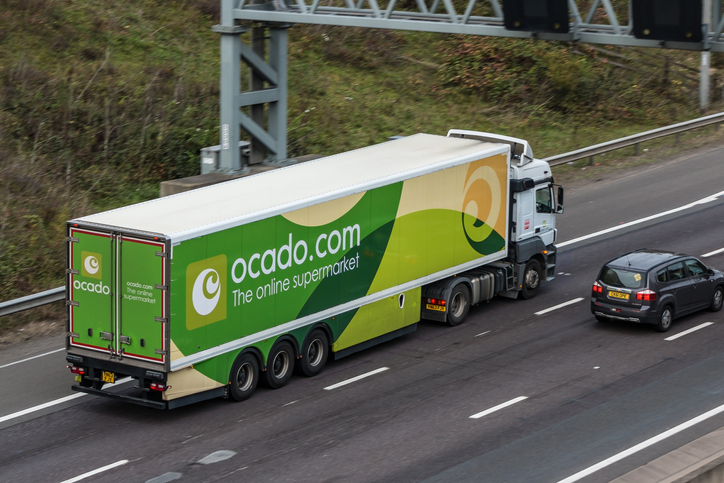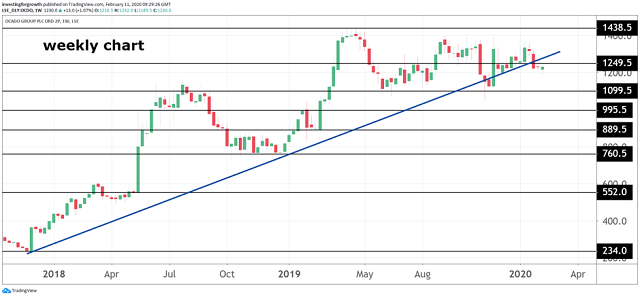Does Ocado have what it takes to keep City happy?
After a fire caused losses at the blue-chip tech firm, our head of markets analyses full-year results.
11th February 2020 09:43
by Richard Hunter from interactive investor
After a fire caused losses at the blue-chip tech firm, our head of markets analyses full-year results.

Ocado (LSE:OCDO) remains at an interesting juncture. It has been a “jam tomorrow” stock for some considerable time, but has managed to keep the bears at bay with a series of partnerships with obvious potential.
For investors, the danger is that the gap becomes too wide between expectation and reality.
Over the last three years, the shares have risen 381%. This has been largely due to a flurry of tie-ups which has kept anticipation at fever pitch. After the transformational deal with Kroger of the US have come equally enticing potential winners with the likes of Coles in Australia and Aeon in Japan, let alone the joint venture with Marks & Spencer (LSE:MKS) which kicks in later this year.
The fact that Ocado has chosen to plough everything back into the business is not necessarily a negative – Amazon (NASDAQ:AMZN) has shown just how successful that strategy can be – but with the business continuing to be loss-making, there could be elements of a disconnect emerging.

Source: TradingView Past performance is not a guide to future performance
In these full-year results for the 52 weeks ended 1 December 2019, the Andover fire was a challenge which, for the most part, Ocado managed to overcome. It seems that the costs will be recouped via insurance, but there was inevitably a disruption to the business which cannot be recovered.
Against this backdrop, the 10.3% growth in retail revenue is a commendable achievement, while group revenues rising 10% also represents a healthy clip. However, £94.1 million of exceptional costs, mostly linked to the fire, widened losses to £214.5 million.
Running costs also showed a significant increase as the business expands, and the widening overall loss for the group has done little to assuage the company’s appetite for further expansion, with £600 million of total capital expenditure expected. That’s on top of a figure which had already spiked 22% year on year.
It appears that extra attention (and therefore cost) will also be applied to the openings of the customer fulfilment centres in Canada and France in an effort to anticipate teething problems for roll-outs in the future.
As such, the strategy is clearly part of the company’s transformation from an online retailer to a cutting-edge technology provider. The Solutions business continues to attract major players from far and wide, but crucially this pace of expansion needs to be maintained for the current share price level to be justified.
At the same time, the size and breadth of Ocado’s expansion provides a constant stream of execution risk, while the lack of a dividend in the foreseeable future defines the stock as a pure growth play.
Even over the last year, the shares have risen 35%, as compared to a hike of 4.5% for the wider FTSE 100 index, and the market consensus of the shares as a “weak hold” – which has been in place for some time now – is reflective of the fact that the exponential rise of both the price and indeed expectations will become increasingly difficult to satisfy.
These articles are provided for information purposes only. Occasionally, an opinion about whether to buy or sell a specific investment may be provided by third parties. The content is not intended to be a personal recommendation to buy or sell any financial instrument or product, or to adopt any investment strategy as it is not provided based on an assessment of your investing knowledge and experience, your financial situation or your investment objectives. The value of your investments, and the income derived from them, may go down as well as up. You may not get back all the money that you invest. The investments referred to in this article may not be suitable for all investors, and if in doubt, an investor should seek advice from a qualified investment adviser.
Full performance can be found on the company or index summary page on the interactive investor website. Simply click on the company's or index name highlighted in the article.